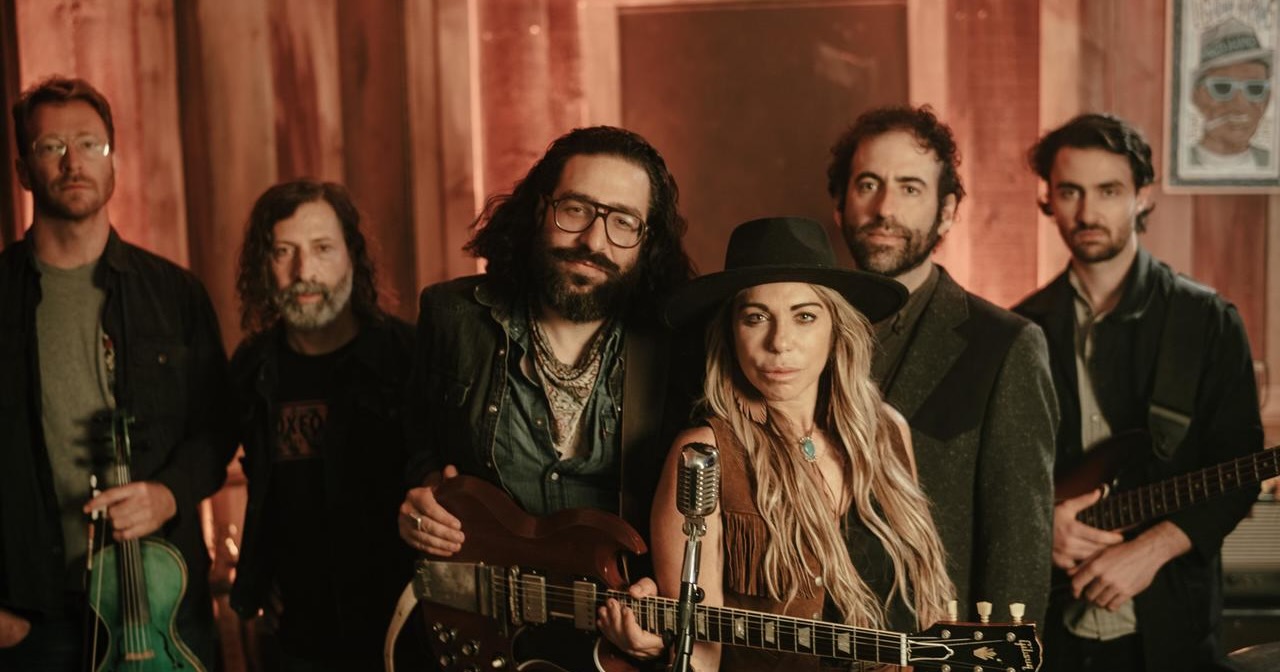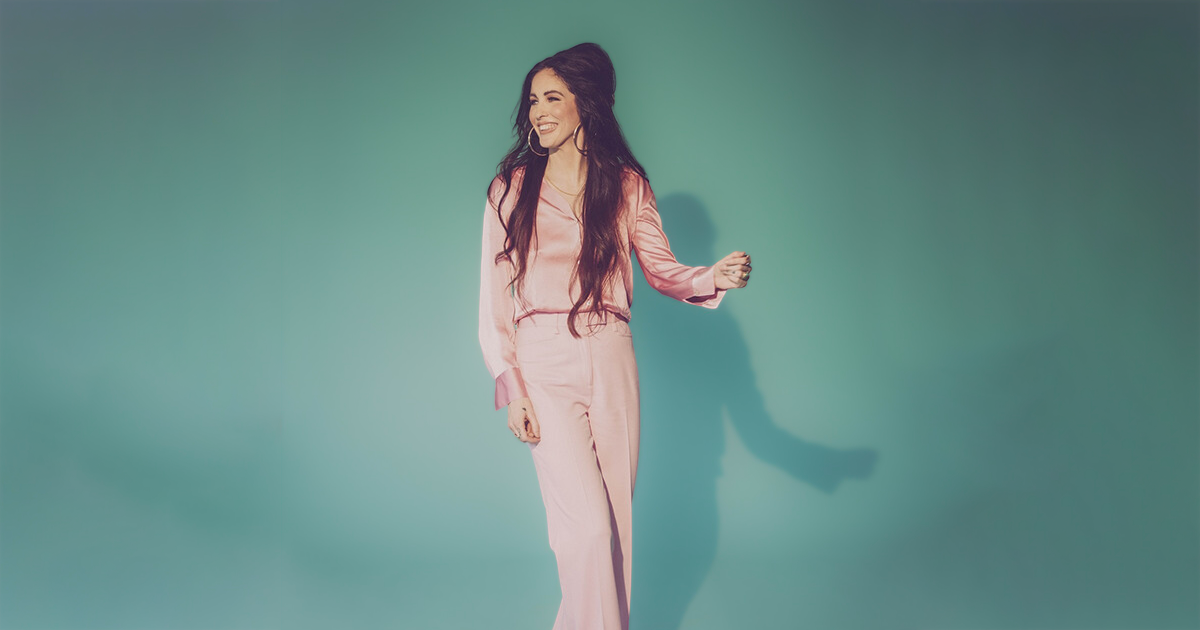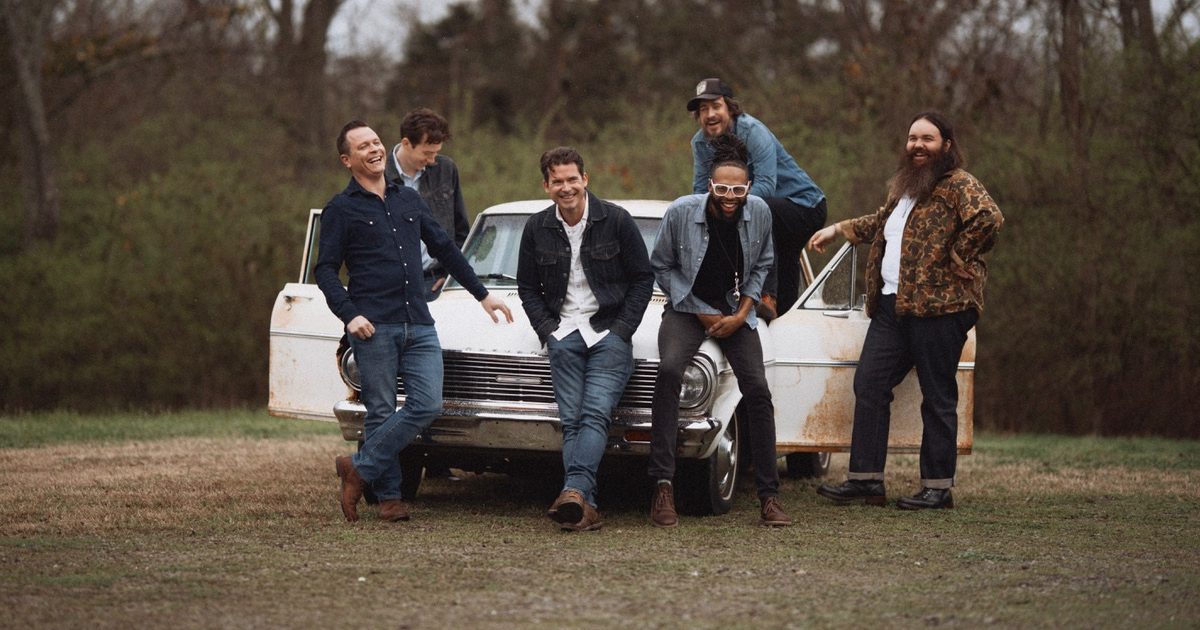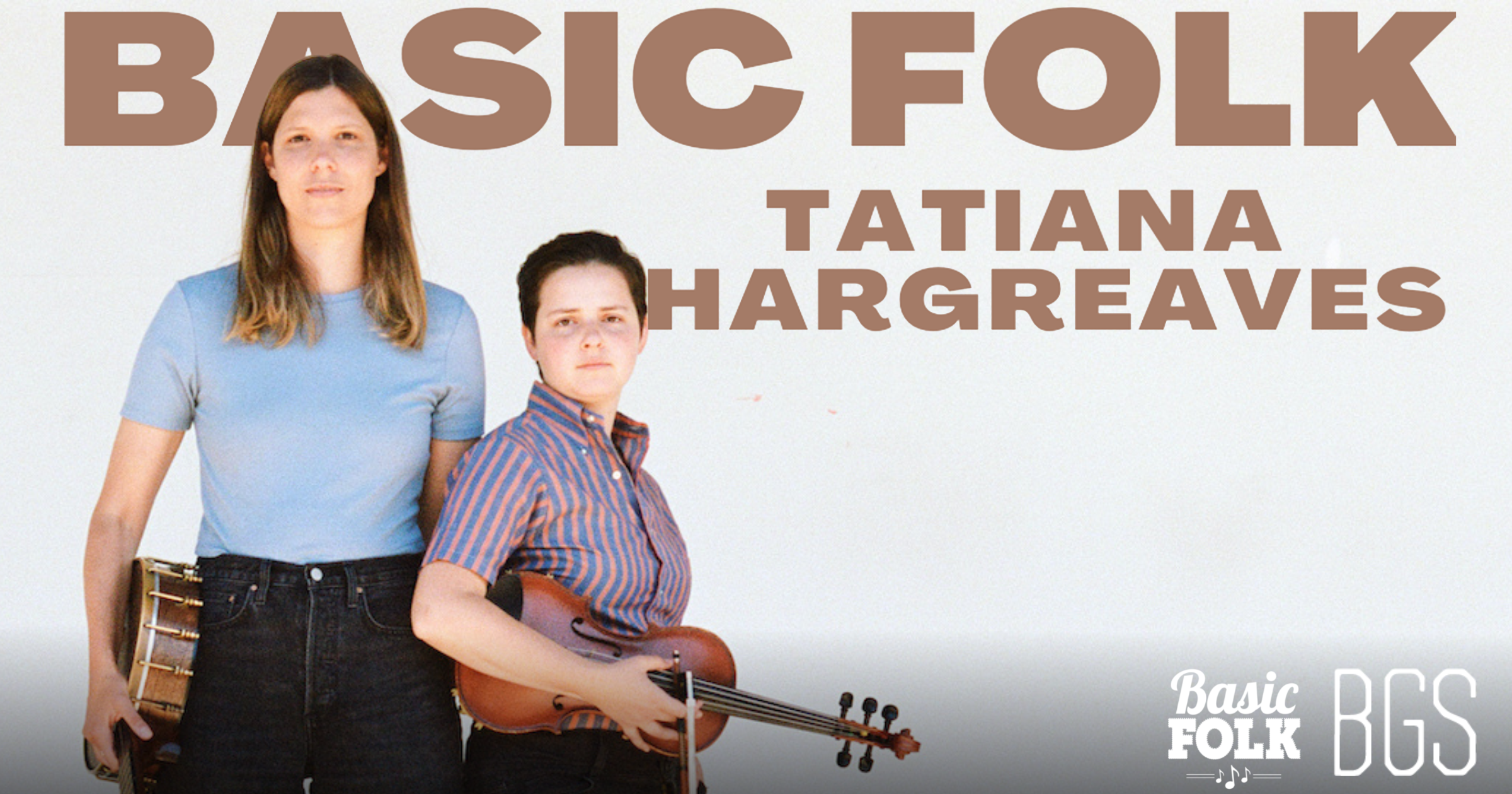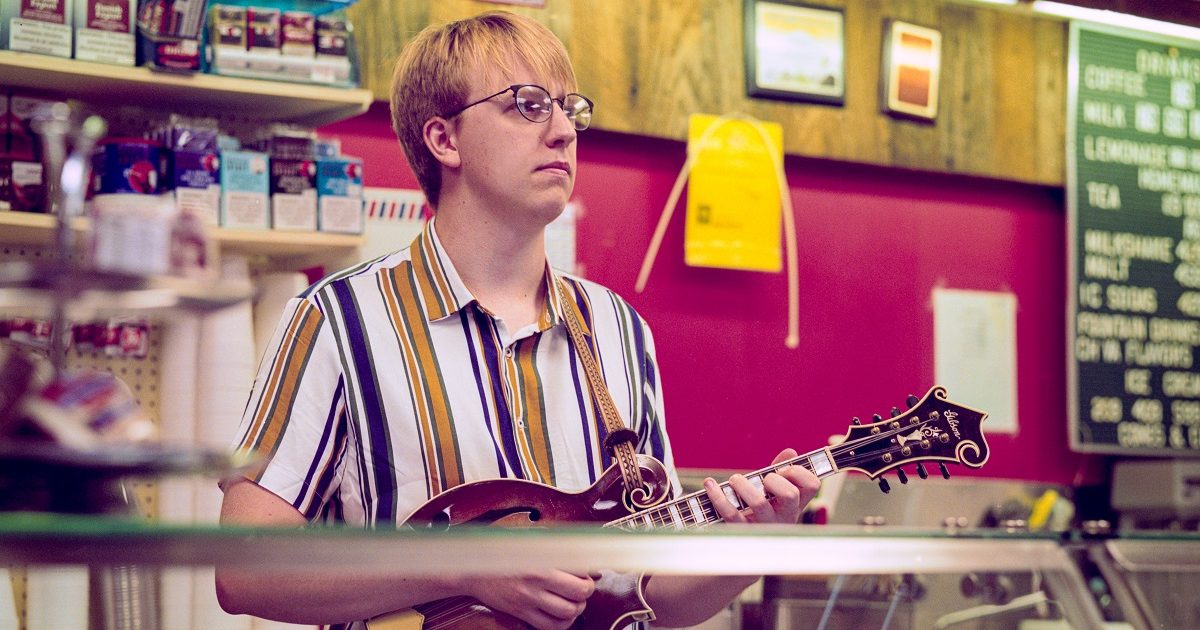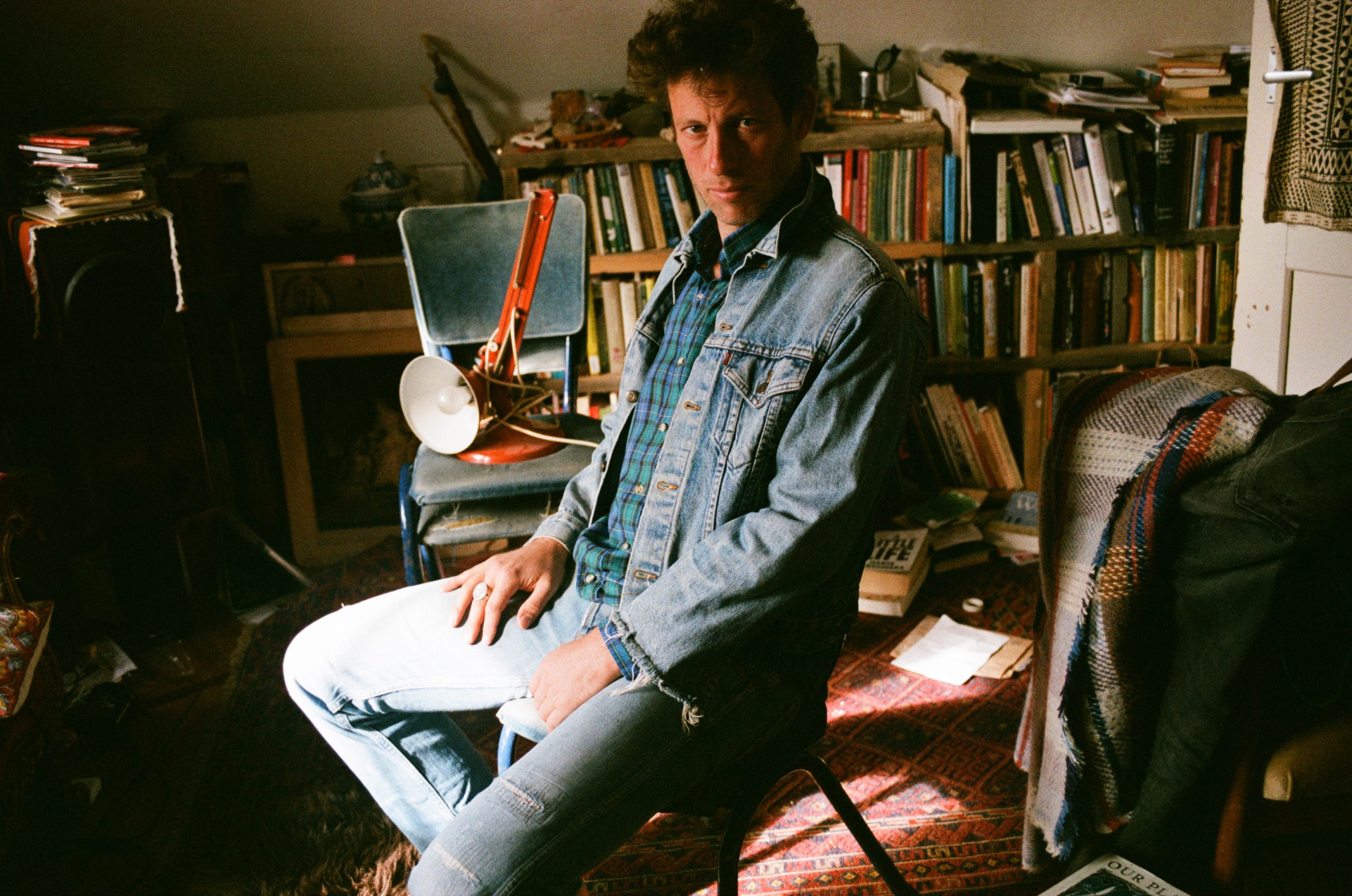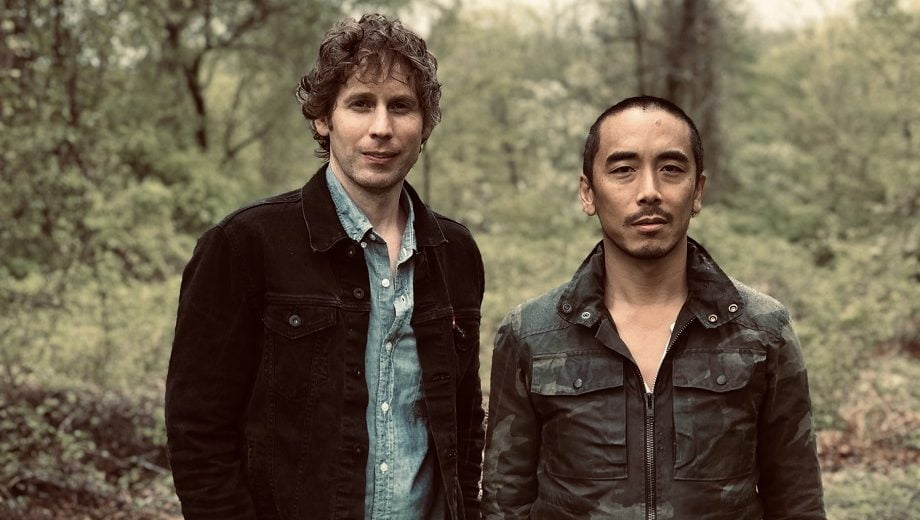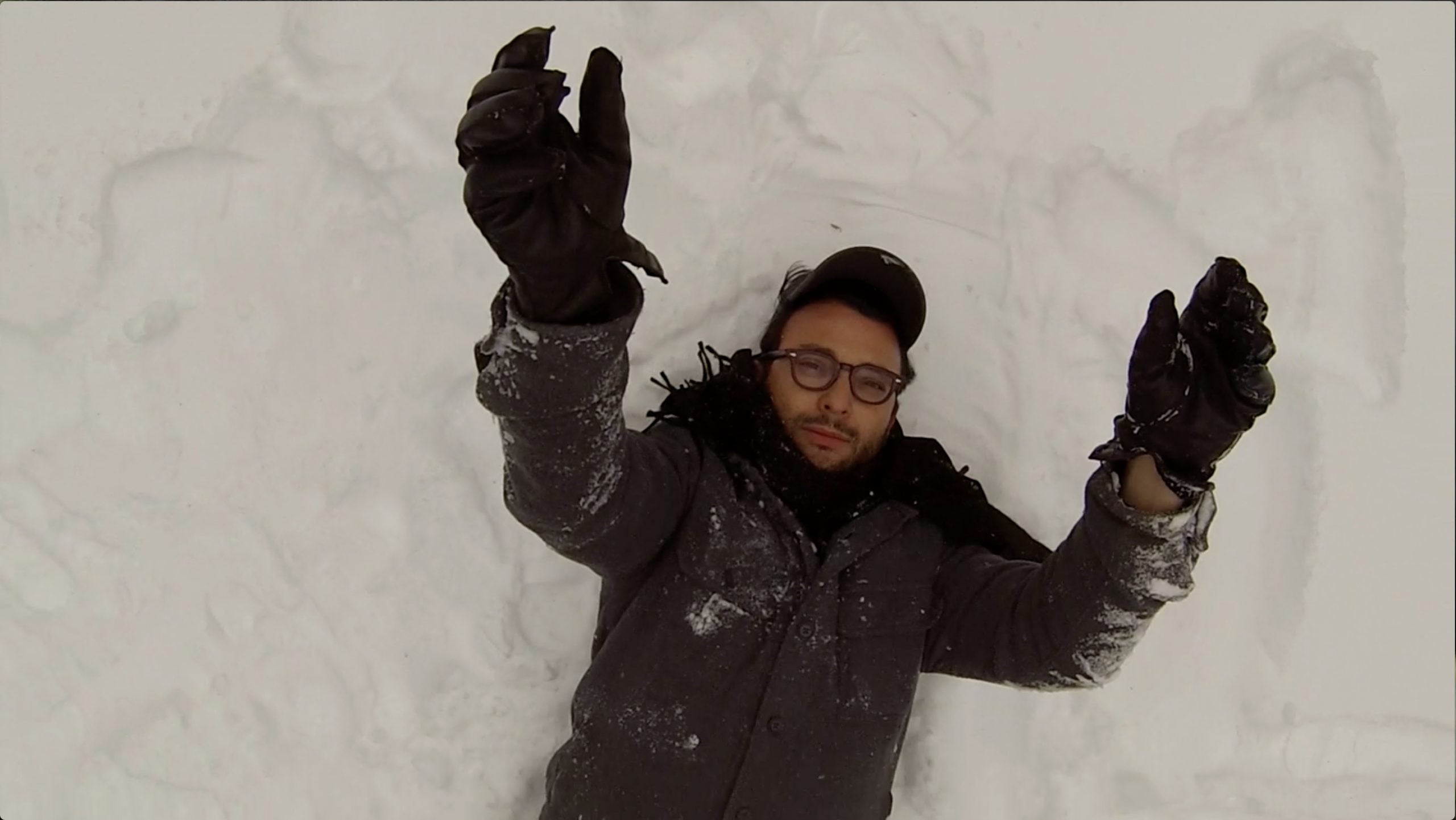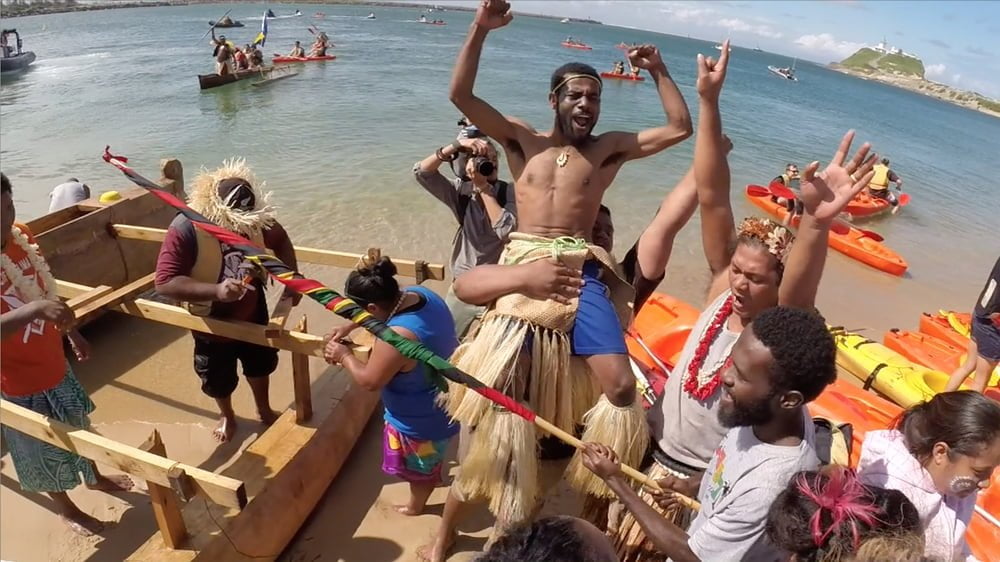It’s been a decade since Doni Zasloff and Eric Lindberg became musical and life partners, melding her background in musical theater and singer-songwriter music together with his blues, jazz, and banjo-picking roots. Now, with a new double album, Beacons, their band Nefesh Mountain dives deep into the myriad ways music can serve as a light in dark times.
The album’s eighteen tracks across two discs convey not only a ferocious command of numerous roots styles, but also a level of compassion and empathy lacking from so much topical music.
“We’re always trying to … walk that high wire between trying to provide an escape … and not neglect[ing] what’s so clearly happening day by day to all of us, as we watch the news and look at our phones and feel this fear and anger and depression,” says Lindberg. The news, he adds, has become “this thing that we can’t run from.”
For many artists on the folk/roots continuum, this desire to comment on the state of the world might mean focusing entirely on our current political leadership. For Nefesh Mountain, though, it means relating with their audience on an even more personal level than usual.
“That’s really part of our job, I think, as artists right now,” Lindberg says.
This echoes a message of “revolutionary love” that many other artists have gotten behind, courtesy of author Valerie Karr.
“Wonder is where love begins,” Karr wrote in her 2020 memoir, See No Stranger: A Memoir and Manifesto of Revolutionary Love. “When we choose to wonder about people we don’t know, when we imagine their lives and listen for their stories, we begin to expand the circle of who we see as part of us.”
This notion is what inspired Ani DiFranco’s 2021 album Revolutionary Love and seems to be echoed on Beacons, with Nefesh Mountain’s determination to weave radical love into their approach to progressive bluegrass and Americana music. Indeed, Beacons seems to strive toward illuminating our common humanity.
Granted, this mission of “radical love” began with the name Lindberg and Zasloff chose for their band in the first place. “Nefesh” is a Hebrew word denoting life force, the sentience that pervades all living things. Radical love requires as much vulnerable expression as it does being open to the array of scary, emotional, dark trepidation so many people have in common. Among the topics Lindberg and Zasloff breach on Beacons: coming clean about a history of substance use, discussing the hard truths around their seven-year fertility journey, and their shared determination to maintain a sense of wonder in a world that can feel relentlessly staid. (“If we’re looking for some heaven, babe/ There’s some right here on the ground,” Lindberg sings in “Heaven Is Here.”)
The first disc of Beacons features a deft exploration of the group’s Americana tones. Though Lindberg and Zasloff are from the Northeast, their Nashville connections and twang-centric improv skills deliver a set of songs that could play just fine on say WSM, the radio home of the Grand Ole Opry.
The set begins with “Race to Run” – a radio-friendly country song about overthinking the struggles of the creative life (“I’m tired of trying to stay out in front/ But you remind me … it’s your own race to run”). “What Kind of World” is a rumination on a sense so many folks share these days, of powerlessness in the face of climate change. (“Is it just me? Can you feel it too?”) But, the song’s lyrics extend into geopolitics and the sense of divide that leaves so many feeling unstable.
Asked about the song’s vulnerable and rather personal honesty, Lindberg notes: “Remember, it was a year and a half ago when the fires from Canada kind of made their way down. We live in the New York area … so the line in the song is, ‘I saw the golden hour at 11 a.m./ They say it’s from the fires, it’s not us or them.’
“Now, a year later or so,” he adds, linking last year’s fire headlines with those of 2025, this time in California. “We had to sing this in Orange County a few weeks back while they were [still seeing smoke].”
As Lindberg’s proverbial camera pans out, the song considers the role of the average citizen in the face of such behemoth powers as climate and politics. “What’s it all for if we’re not all free,” the lyrics ask, shifting from fear about climate disasters to a purpose of climate justice. This ability to move from complaint to action item in a single verse, all couched in infectious twang, is what sets Nefesh Mountain apart from many others in the country space.
The Americana disc’s finest moment, however, is “Mother,” a song written by Lindberg that addresses so many of motherhood’s side effects. “I’ve lived many lives,” Zasloff sings. “…It’s all part of the job as a mother.”
Zasloff notes that her first two children – from a previous relationship – were practically grown when she and Lindberg began trying for a child of their own. What ensued was a seven-year fertility process that echoes what so many women encounter when they discover becoming pregnant is not always as easy as it seems.
“I burst out crying when [Eric] first shared [‘Mother’] with me,” she says, “because it was so personal and so empowering and beautiful for my husband to write that about me.”
In addition to the way the song tackles their infertility journey, it also reckons with Zasloff’s history with alcohol – something she chose to leave behind in order to become a mother. “I decided in that moment of having that song come into the world,” she says, “that I was wanting to talk about something personal that I had never talked about publicly, ever. Which is the fact that I am sober. I’m an alcoholic and I just celebrated 20 years of sobriety. And I actually became sober to become a mother. It’s part of my whole story.”
Livin’ with that drink, Lord,
Always left me wanting more
But I was saved
When I became a mother
After that high point, the group moves into the traditional “Keep Your Lamp Trimmed and Burning,” which Lindberg notes has long been a part of their live show. “We’d always mess with the arrangement,” he says. “I kind of just called it in the studio. We had a little bit of extra time. I didn’t know it was going to be on the album, but it’s one that the band knew when we were down in Nashville and we kind of arranged it on the fly.”
“We’re all New York guys and jazz players,” he adds. “So we wanted to lean into that a little bit and bring this real Americana spiritual into a different sonic space, really let improvisation take over, and help that add to the obviously beautiful meaning of the song.”
Nine tracks in, Beacons switches to bluegrass, bringing in giants of the form to round out the band. Of course, anytime Sam Bush, Jerry Douglas, Stuart Duncan, Rob McCoury, Cody Kilby, and Mark Schatz come together in any room, the sound is bound to slap. Toss in Lindberg, whose pre-Nefesh background is jazz improvisation, and something truly special crops up.
“Regrets in the Rearview” opens this second disc, feeling like a bluegrass answer to the Americana set’s opener, “Race to Run.” Its instrumental section sets a high bar for the rest of the collection, as the band hands around lead duties, featuring some of the finest bluegrass instrumentals in the biz.
But it’s “This Is Me,” coming in at bluegrass track number three, that delivers one of the double album’s finest moments. Capitalizing on the band’s commitment to building connections and “radical love,” “This Is Me” tells the bluegrass side’s most personal story.
“A question that’s been thrown at us for years now, and especially to Eric,” says Zasloff, “is: How did a Jewish kid from Brooklyn get into bluegrass? … He came to me and he said, ‘I think I wrote a response song so that people will stop asking me that question.”
“I was thinking about it,” Lindberg says. “How did I get into bluegrass? [“This Is Me” is] more about if we’re lucky enough to find that thing that really makes us come alive and makes our soul kind of catch fire –whether it’s writing a song … or painting or sculpture or any trade anyone does. If that’s the thing, then it doesn’t matter, geographically, where we’re from.
“I’m of the belief, nowadays especially, with what we’re trying to do in the roots world, [that it’s important to] try to break down all the barriers,” he continues. No matter where people are from, he adds, “there are people that find this music and go, ‘Wow, that is lighting me up!'”
With that, Lindberg hearkens back to the title of the album. That music might be a light in dark times is, of course, no new concept. (Consider “This Little Light of Mine.”) But the fact that the idea has been floated before doesn’t mean it’s not worth mentioning. At a time when so many folks feel powerless to the onslaught of news and information coursing through the internet and the real world alike, it can be easy to feel like none of us are enough to meet the moment. But Beacons is a reminder that there is no darkness without light.
“No one knows how we become who we are,” Lindberg says, before offering a word of advice. “Everyone just be yourself –regardless of the questions you get or the pain or the hate that you see. You’ve just got to stay true.”
Photo Credit: Kelin Verrette & Rafael Roy
